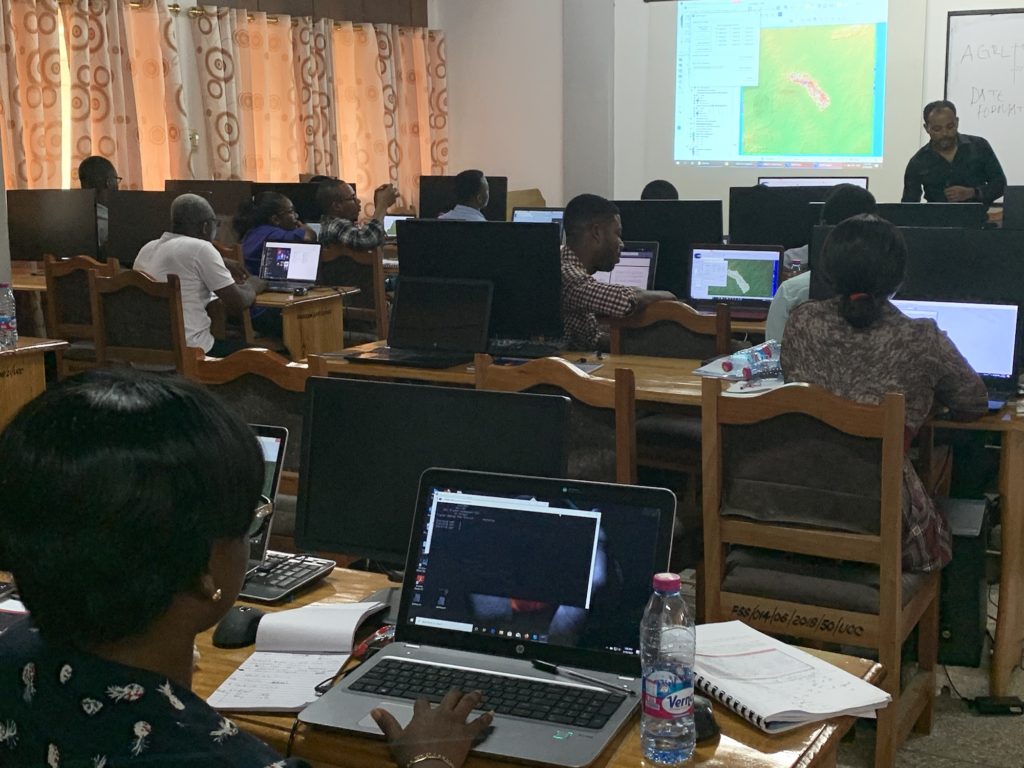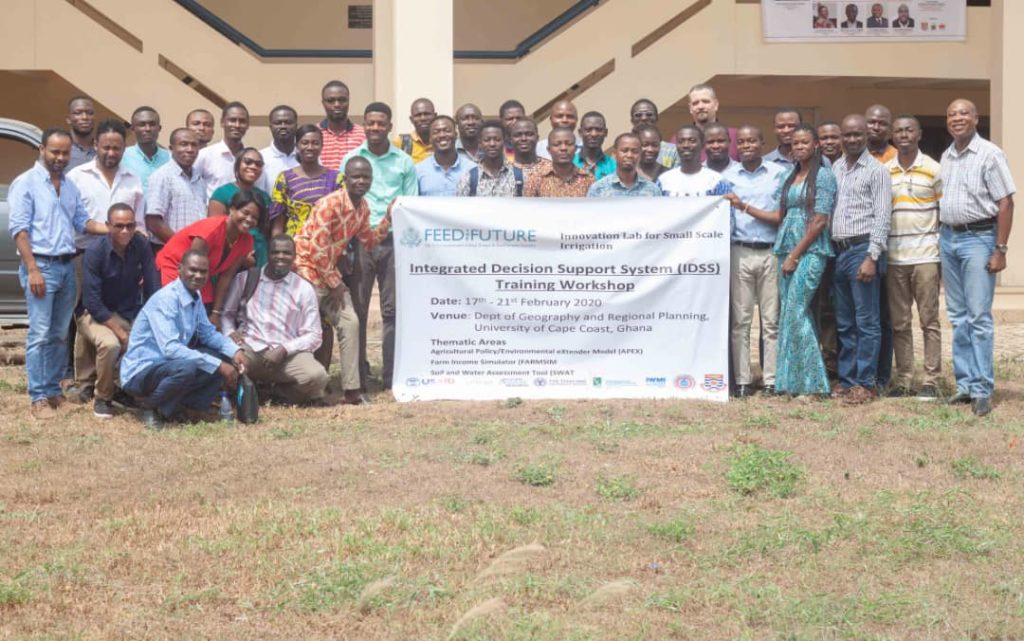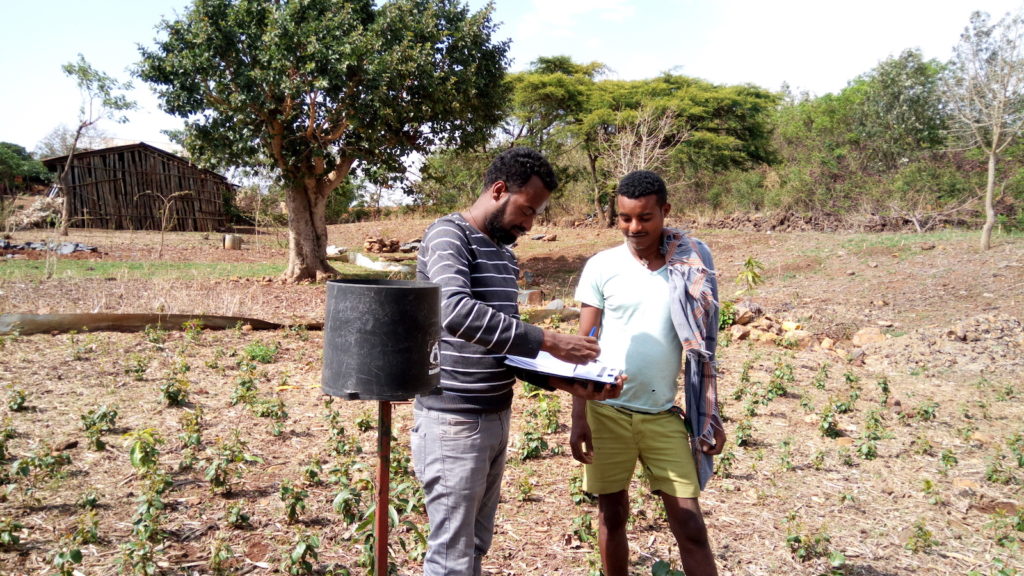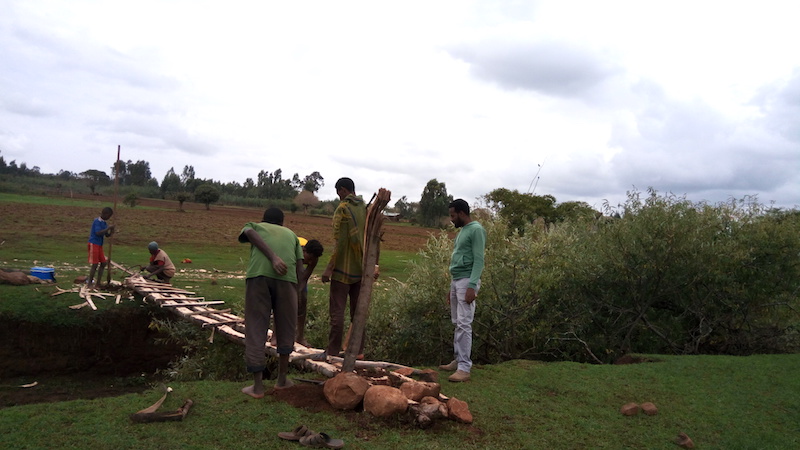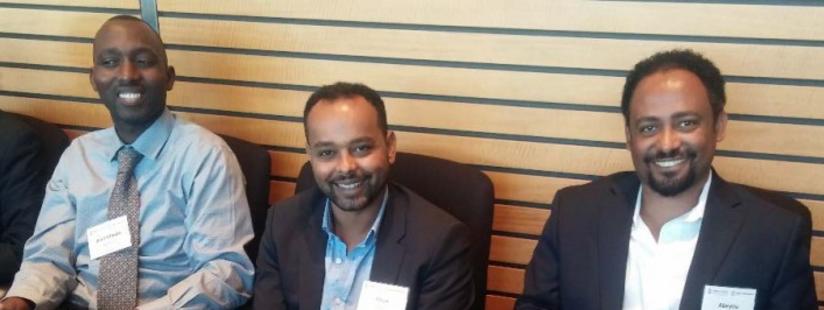In 2014, Elizabeth Bryan joined ILSSI’s capacity development program for graduate students, and she investigated gender and small scale irrigation, as well as the linkage between irrigation and nutrition. Today, Bryan is a senior scientist in the Environment and Production Technology Division at the International Food Policy Research Institute (IFPRI), where she focuses on water resources management and climate change adaptation and gender.
What issues were you studying, while you were working with ILSSI?
With respect to gender and irrigation, we explored the barriers that women face to adopting, using, and benefitting from technologies for small scale irrigation. We also looked at how adopting small scale irrigation may influence various aspects of women’s empowerment, such as their level of participation in agricultural decisions, control over income and productive assets, and time burden.

The results across the countries we have worked in (Ethiopia, Ghana, and Tanzania) are varied, given different gender roles in agriculture, social norms, and available systems, technologies, and practices for small scale irrigation.
Our findings on irrigation and nutrition highlight two main pathways through which irrigation can improve diets and nutrition outcomes: through changes in production and increased income. Irrigation enables greater production and consumption of more nutrient-dense crops, such as vegetables, that improve diet quality. Being able to irrigate also enables production during the dry season, increasing availability of food during these times. Farmers use the income from selling irrigated crops to purchase foods that improve household diets, such as milk and eggs. Irrigating farmers appear to be more resilient to drought, thanks to their improved nutritional status. Findings on the links between irrigation and nutrition were summarized in a guidance note by The World Bank to support more nutrition-sensitive approaches to irrigation investments.
Gender matters for these linkages between irrigation and nutrition because women have different preferences for which crops are grown under irrigation, how these crops are used – whether for sale or consumption – and how income from the sale of irrigated crops is spent.
What was the most surprising thing you found?
The gender sensitivity of many irrigation interventions is low, meaning that they fail to consider the linkages between gender and irrigation. This is due to limited capacity on gender in many implementing organizations and agencies. However, there is interest, including from the private sector, in utilizing strategies to better reach and benefit women through irrigation.
Another surprising finding is that when households adopt modern irrigation technologies in northern Ghana, men tend to take over irrigation activities. Rather than feeling excluded, many women were relieved not have to participate in manual irrigation, which they considered a burdensome task, and to have more time to devote to other income-earning activities.
How did the work you did with ILSSI inform the next steps in your career?
After I finish the remaining research papers on my plate, I hope to develop some guidance for implementing partners to adopt more gender-sensitive strategies. New modalities are emerging for how to expand small scale irrigation technologies, such as through group-based or rental arrangements, and the gender implications of these also need to be examined so that these interventions are inclusive and benefit women.
What is your advice to other students looking to work with ILSSI or other Feed the Future innovations labs?
The Feed the Future Innovation Labs are a great way to engage different partners, including cross-disciplinary researchers, development practitioners, policy-makers, and donors. I am grateful to have had the opportunity to collaborate with so many inspiring people, who are dedicated to tackling some of the greatest development challenges.

